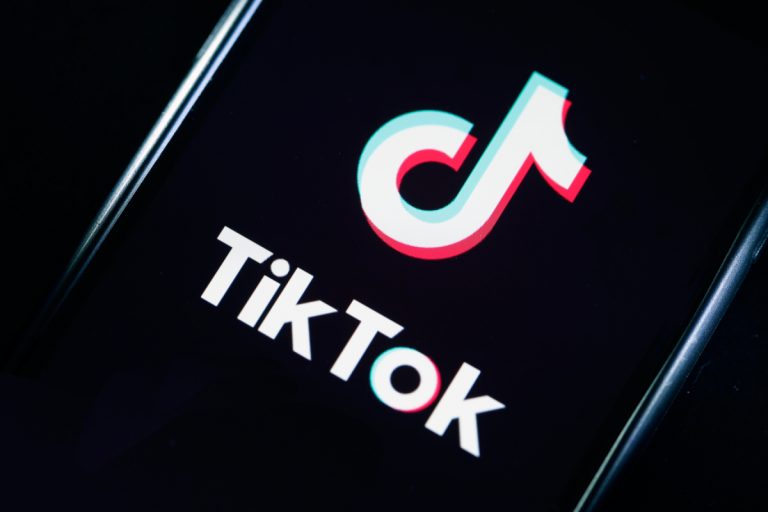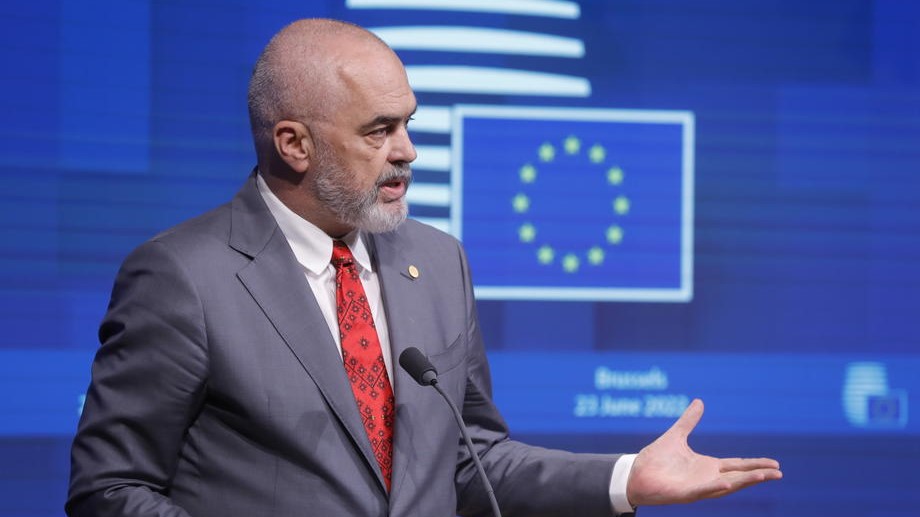Some schools in Kosovo were alerted that some of their secondary school students tried a new challenge from TikTok and broke their arms and hands. On the other hand, after a teenager in Albania reportedly killed a 14 year old, the government decided to shut down the application, temporarily.
On the morning of December 9, Jakup Bahtiri received a surprise call.
“A 9th grade student’s arm was injured,” Bahtiri, the director of “Vëllezërit Frashëri” primary school in Lipjan, some 18 kilometers from the Kosovo capital, Prishtina, told Prishtina Insight.
“At first we took the girl to the emergency room, where she was found to have a tiny crack,” he added.
This was not a random case of students’ injuries by playing in the school’s courtyard. He found out that she had self-harmed, reportedly as a result of the so-called TikTok “Superman Challenge.”
Bahtiri said that upon receiving the information, the case was reported to the Kosovo Police and to the Lipjan Municipality Education Directorate. This is just one of five cases of students being self-harmed because of this TikTok challenge in Lipjan.
Only three days before, another student was reported to have been harmed in a primary school in the Municipality of Istog while participating in the “challenge.” Another Kosovo municipality, Mitrovica, counted seven cases of students being harmed for the same reasons within a few days.
In neighbouring Albania, more drastic cases stirred outcry when a 14 year old was stabbed to death by one of his peers close to his school in the capital of Tirana. The government decided to ban TikTok just a few weeks later.
Megi Reci, a lawyer and researcher on digital security at the Tirana-based Institute for Democracy and Mediation, IDM, told BIRN that the violence problem in Albanian society is a much more complex issue and the closure of TikTok would not be the solution.
“I don’t think that closing TikTok is a solution to the issue of youth violence or violence in society… I think that these problems are much more complex and are systemic in our society and need more analysis, and go beyond social networks,” Reci said.
“Through TikTok all these bad things in Kosovo are happening”

TikTok logo. Photo: TikTok social media platform
“These online games that require dangerous and brave actions can reinforce a culture of extreme competition and aggressivity where pupils feel forced to improve their performance time after time, causing damage to themselves or others,” Burbuqe Mikullovci, a Pristina-based psychologist told BIRN.
Kosovo Police did not answer BIRN’s questions on the measures taken after the self-harm cases appeared, and only shared a press release they distributed in December.
“Superheroes aren’t real, take care of yourself and your friends. Don’t be part of the game that risks life,” the press release read.
“We should teach children to understand better the importance of body care and their mind at first, their well-being and to stay away from activities that bring insecurity and other damage to them,” psychologist Mikullovci added.
Director Bahtiri said that students informed the school psychologist that their friend got injured.
“When the psychologist went there [to the bathroom], the girl did not tell her how she got injured, but claimed that she had dizziness… and she fell,” Bahtiri told BIRN.
Drilon Jaha, a digital technology expert, said that one of the reasons why students watch these videos and challenges on TikTok is because of algorithms and their interest.
“At the moment, to all youth in the world is very popular —short video content or video content with short length, this means all youth’s attention is there… They made sharing very easy, they opened an account and this made it easy for things to become a trend,” Jaha said.
As Albania has already announced the drastic measure on TikTok, Jaha predicts that it would be difficult for Kosovo to follow suit.
“Australia stopped TikTok’s use for children under the age of 16 years old,” Jaha said.
“I think that it is very problematic [to stop TikTok use entirely]… It is almost impossible and something that would negatively portray a state in the eyes of the world,” he explained.
Instead, Jaha suggests more work in increasing the awareness among children on the risks that TikTok challenges bear. He also suggested that influencers in Kosovo who use TikTok could help by promoting awareness for stopping harmful activities.
In October, Kosovo’s Minister of Education, Arberie Nagavci, expressed her concern as the self-harming cases increased calling the platforms as “abusive” and called for more coordination from parents, teachers, psychologists and sociologists “to raise children’s awareness for a safer use on internet”.
Albania’s PM quest to shut down TikTok

Albanian Prime Minister Edi Rama Photo: EPA/STEPHANIE LECOCQ.
Facing a public outcry at home after the murder of a 14-year-old boy in Tirana, Albania’s Prime Minister Edi Rama started a round of town halls with parents to inform them about the government’s plans to shut down TikTok within its territory.
Months before, on 28 June, Kosovo’s Government banned TikTok from all public institutions with the purpose of eliminating cyber attacks. All officials were obliged to remove the TikTok app from official devices.
On December 21, Rama pompously announced that Albania would ban TikTok for a year, after a campaign of consultations. He added that this is not a rushed decision and the violent events are not isolated.
“Have in mind that, in the meantime, we have done all the research in the technological aspect and we would need 6-8 weeks starting from the New Year to close it completely for everyone for a year. There won’t be TikTok in the Republic of Albania,” Rama said.
The decision has been opposed by the civil society in the country and the opposition party, months before Albania goes to the parliamentary elections in May 2025.
Sali Berisha, head of the opposition Democratic Party, said that this is an “extreme act of censure.” He added that another reason was that the platform was used by citizens to voice their criticism of the government.
“We are on the verge of elections and (he) cannot tolerate the negativity reflected by citizens on these platforms,” Berisha said.
Following Tirana’s decision, TikTok asked for “urgent clarity from the Albanian government” in the case of the stabbed teenager. The company said it had “found no evidence that the perpetrator or victim had TikTok accounts, and multiple reports have in fact confirmed videos leading up to this incident were being posted on another platform, not TikTok.”
This is not the first time that the Albanian government blamed TikTok for violent events and started a public discourse about the possibility of closing TikTok in the country.
Megi Reci recognizes that there might be “problems” in TikTok but says that shutting down a social network is not a practice of a democratic country.
“TikTok may have its own problems in relation to the way it filters the content, how the content spreads, the fact that maybe there are no filters, maybe they are not deleted in time, maybe they don’t cooperate with the institutions, different problems that have come up,” Reci said.
“However, the government itself has undertaken to fix this relationship, through the relationship with Audiovisual Media Authority (AMA) or the meetings that were held earlier,” she added.
For Rigels Xhemollari, an education expert who runs Qendresa Qytetare (Civic Resistance), an NGO, shutting down TikTok is neither the problem nor the solution.
“In all the analyses we have done, the review of the strategies and the state of the situation in education, we can say that TikTok is neither a problem nor a solution,” Xhemollari said.
“The restriction of TikTok regarding the language of violence or the people who express the language of violence there is an issue that can be resolved very quickly and with some filters from the relevant institutions,” he concluded.





